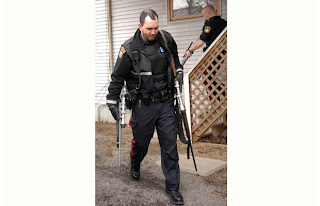Health
Bisphenol A coats 40% of store receipts
August 2, 2010
NANCY J. WHITE
Toronto Star
Bisphenol A, the controversial chemical that Canada banned from baby bottles, may be coating the sales receipt you take at a store’s cash register.
In a study by a U.S. environmental group, 40 per cent of receipts collected from major U.S. retailers, supermarkets, food chains and gas stations contained BPA, known as a hormone-disrupting chemical.
The total mass of the chemical found on the 36 collected receipts was 250 to 1,000 times greater than the amount of BPA typically found in a can of food or that leaches from a BPA-based plastic baby bottle, according to the report by the Environmental Working Group in Washington, D.C.
“Our point is that 60 per cent of the receipts had no BPA or very insignificant traces. This is one exposure that’s easily fixed. Retailers can easily make the transition to BPA-free paper,” says Anila Jacob, a senior scientist at EWG.
Receipts from Canadian stores would likely provide similar results, says Janelle Witzel, program manager at Environmental Defence Canada. Previous BPA testing of food cans and plastic baby bottles found comparable levels between Canada and the U.S., she says.
Studies suggest that low doses of BPA can interfere with the endocrine system, possibly contributing to such adverse health effects as cancer, reproductive problems, diabetes and hyperactivity.
Scientists are not certain how much BPA from receipts would get into the body. “BPA could stick to the skin of the hand and be absorbed or it could be ingested if the person touches food,” says Jacob.
In the EWG study, researchers found that some of the BPA on a receipt could be rubbed off with a lightly moisturized wipe. “It’s not tightly bound,” explains Jacob.
In the U.S. study, receipts containing BPA were obtained from at least one outlet of such major retailers as Safeway, Chevron, KFC, McDonald’s and Whole Foods.
Receipts from the supermarket chain Safeway showed BPA from all three outlets visited and had among the highest concentrations: 20.7, 20.6 and 41 milligrams on the receipts.
Of the three McDonald’s restaurants, one receipt showed only a trace amount and the other two had 13.3 and 9.07 milligrams.
At McDonald’s Canada, communications manager Stephanie Sorensen says that the thermal paper used here for its receipts does not contain BPA.
Thermal paper, widely used for receipts, prescription labels and airline tickets, is coated with a dye and a chemical, such as BPA or an alternative, that acts as a developer when heat from the printer is applied, producing the black print on the receipt.
Retail workers and cashiers may be particularly concerned about BPA exposure from receipts since they frequently handle the paper through the day. Jacob suggests they speak to their employers about switching to non-BPA paper.
Since BPA is used as a hardening agent in some plastic and in the liners of food cans, Jacob recommends limiting contact when you can.
Don’t take receipts if you don’t need them and never give one to a young child to handle. She suggests keeping an envelope that a cashier can simply slip the receipt into.
After taking a receipt and before eating, she recommends washing your hands with soap and water – not alcohol-based sanitizers. “There’s some evidence they might increase the BPA penetration into the skin,” says Jacob.


